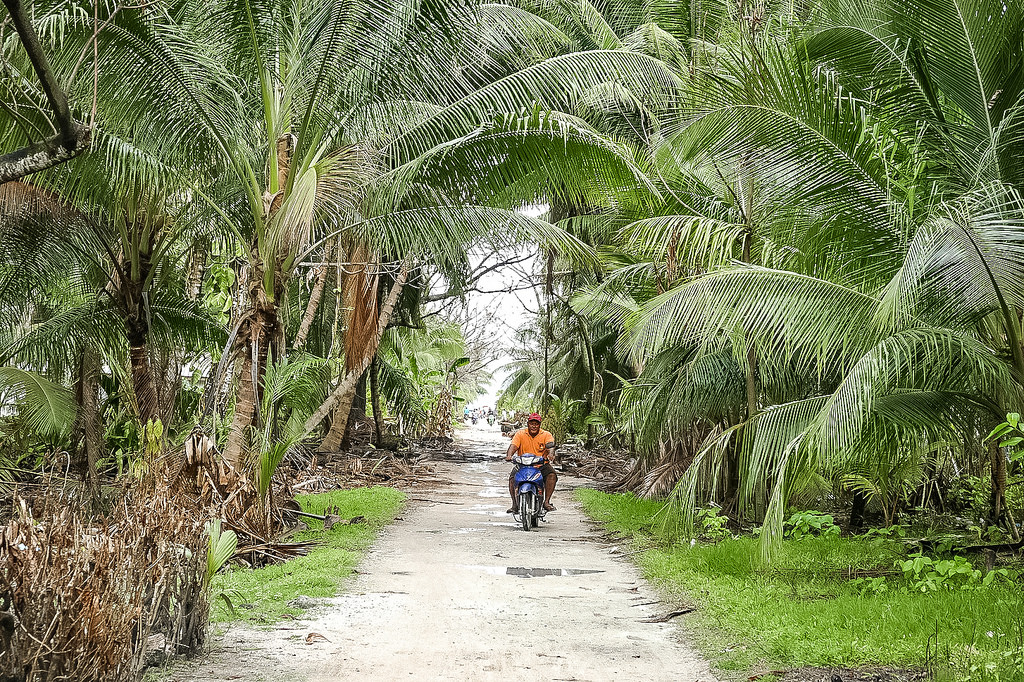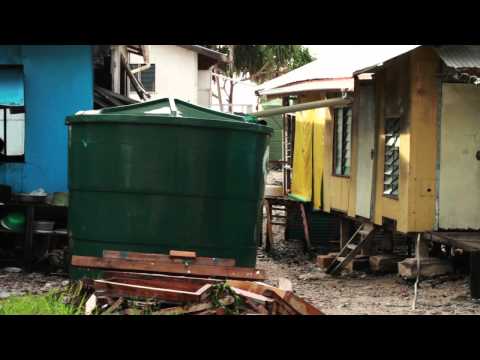
PACC Tuvalu: Climate proofing water management plans for Lofeagai Community
In Tuvalu, a very small atoll nation of eight inhabited islands, the PACC project supported the improvement of water infrastructure to enable people to better cope with current and anticipated climatic changes.
- Community
- Local Governments
- National Governments
Members of the Lofeagai Community, Funafuti.
- PACC
- Ministry of Environment, Government of Tuvalu
- United Nations Development Programme (UNDP)
- Global Environment Facility (GEF)
- SPREP
- Australian Government
Water is a critical issue in Tuvalu. With no surface water, Tuvalu depends on rainwater, collected from the roofs of houses and stored in water tanks, as a key water source. This reliance on rainwater means that Tuvalu is highly vulnerable to changes in rainfall patterns, sea level, and associated extreme weather events that affect the quality and quantity of accessible, potable water.
Availability of water resources is an ongoing challenge that is exacerbated by climate change; water shortages are frequent. Most recently, in October 2011, severe water shortages drove Tuvalu into a declared state of emergency in which residents were rationed 20 litres of water a day per household.
On Funafuti Island, the most densely populated area in Tuvalu, the Lofeagai Community depends heavily on rainfall to supply all its water needs. A period of two to three weeks of no rainfall on this island can cause serious water shortages, halving water levels in its water tanks and adversely affecting village livelihoods and agricultural production.
Rain-sourced water supply is usually adequate on the island, however; it’s a lack of sufficient water storage facilities that has been the main problem. Current water management infrastructure and design are deficient for rainfall storage, distribution and sustainable use. This has serious implications for the people of Tuvalu and their community, as it affects the availability of water for consumption, agricultural production and industry, as well as village livelihoods. This challenge becomes particularly problematic in the face of extreme events such as droughts, tropical storms, wave overtopping and associated storm surges. In order to meet urgent public water demand, the Tuvalu Government has imported desalination plants.
The first of the PACC outcomes is devoted to mainstreaming. The PACC approach to mainstreaming has a dual purpose: 1) to strengthen the ability of institutional frameworks, policies and plans to take climate change risks into consideration and 2) to improve the capacity of key national government and community decision-makers to integrate adaptation measures in key decisions.
The second PACC outcome is to design and demonstrate innovative decision systems, approaches, technologies and practical measures to improve climate-resilience.
The third outcome, Technical Support and Communication, is to ensure that results and lessons from the PACC project are shared regionally and globally. The goal is also to bring together new knowledge generated through the project as the basis for a strategic regional approach to climate change adaptation among Pacific Island Countries and Territories.
Key Results
- National adaptive capacity developed
- Community vulnerability to climate change reduced
- Technical assistance & Regional Cooperation
Outputs
- 1.1 Technical capacity of key decision makers developed
- 1.2 Institutional coordination mechanisms established
- 1.3 Tools to assess economic costs of adaptation developed and utilized
- 1.4 Legislative and policy directives prepared and adopted
- Public Works DepartmentLoia TausiPACC National Coordinator
- SPREPTaito NakalevuPACC Regional Project Manager
- UNDPMarta MoneoUNDP Environment Programme Officer
- UNDPGabor VerecziUNDP Regional Technical Advisor

